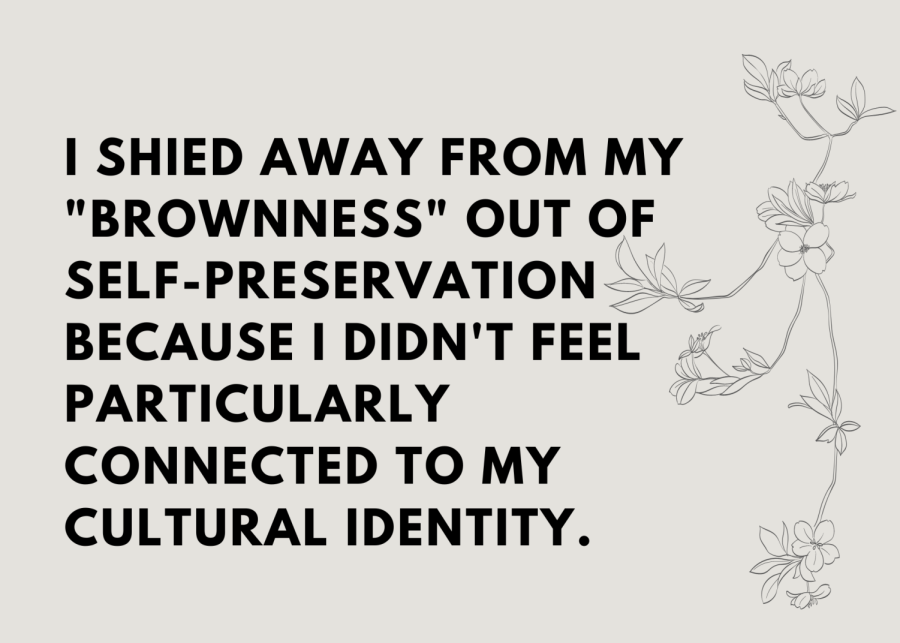The artistry of alpona
May 23, 2023
Little three-year-old me stood, observing the aunties gossiping and laughing while stooped over with vibrant chalks illustrating geometric patterns and floral designs all over the walkway. With the piquant aromas of cumin and sizzling onions gliding through the air and the boisterous conversation of my uncles discussing the latest politics, it was the first time I truly felt a sense of belonging within my culture. Watching the vibrant intricacies of the folk art, alpona, inspired little me to go home and sketch my own designs.
Alpona is a kind of folk art originating in South Asia. It is customarily performed by women and entails utilizing paints that are typically made from rice flour to create color-intricate designs, patterns and symbols on floors and walls. Growing up, I’ve viewed the practice at auspicious and joyful occasions such as weddings. Events like these were when I felt the most intertwined with my culture.
Although celebrations connecting me to my Bangladeshi heritage remain a large aspect of my life, growing up I often feel an ostracization with my connection to my culture.
At home, my parents speak to me in Bangla yet I respond in English. When talking to my relatives, I respond awkwardly with a mixture of fragmented Bangla and English. How could I think of myself as Bangladeshi if I can’t even speak the language that my country fought in wars for?
This barrier between myself and my cultural identity continues further on even with my friends. My South Asian friends jokingly make fun of me for my inability to pronounce “brown” names. While I laugh at their jokes and my poor attempts, a tiny gnawing sense of alienation forms in me. When they discuss Bollywood movies and songs, I nod and smile, acting like I know about the famous movie stars they gush over.
I tell myself that maybe if I forced myself to speak more Bangla or forced myself to listen to Bollywood music, I wouldn’t feel this way now. In reality, there’s so much more. These feelings of chagrin and guilt brought me to enter a constant cycle. I shied away from my “brownness” out of self-preservation because I didn’t feel particularly connected to my cultural identity. Through this, I believed that I didn’t have a right to claim my Bangladeshi identity.
Yet, the other day, something shifted. After a long day of exhaustion, I sat quietly in an vacant room, grabbed a piece of paper and a marker, and plugged in my AirPods. With all the stress from the day, I had to let it all out somehow. I wanted to journal, but instead of writing, I found myself drawing elaborate designs of sun-like flowers with sharp petals and billowing stems. Suddenly, drawing my own alpona carried me back to the empty, quiet afternoons in my old house, where three-year-old me would etch colorful and complex symmetrical lotuses filled with jagged lines. Instantaneously, the forgotten memories of long car rides where my parents would play Rabindranath Tagore songs on a scratchy CD, assisting my grandmother with rolling out the dough for paratha, and dancing at Bangladeshi festivals wearing embellished and colorful panjabis rushed into my mind.
These memories serve as undeniable proof of my identity. They remind me that the sense of belonging will always coexist with my growth as a person. I am Bangladeshi in a way that no one else is and I am proud of it. As I continue to grow, the security I feel will only come to me when I accept that my ability to identify within my culture can only be defined by me, not anyone else.
